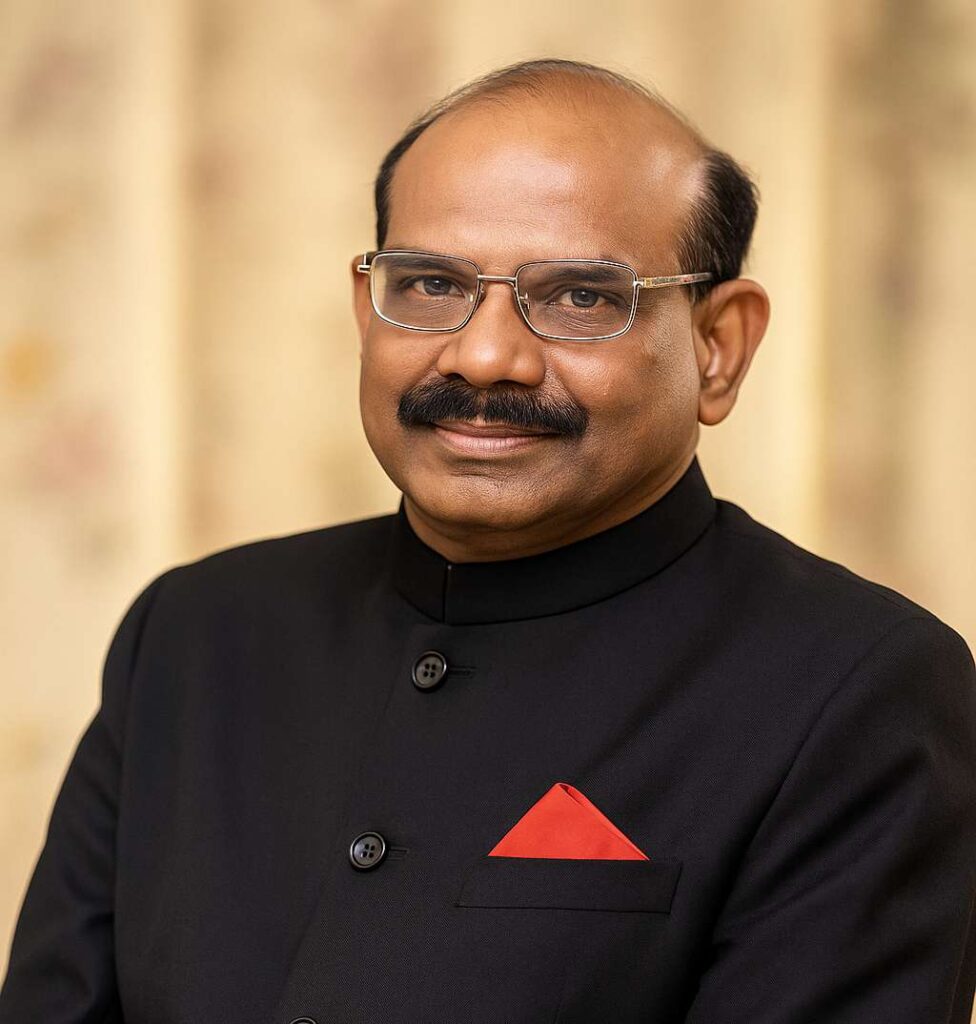About Us
Dr. Rajendra Prasad embodies medical excellence, earning the title “Father of Pulmonary Medicine in India.”
With over 45 years of pioneering contributions, he has redefined respiratory medicine, tuberculosis control, and medical education in India.
He has treated over 500,000 patients, played a pivotal role in the National Tuberculosis Elimination Programme (NTEP), and integrated 700 medical colleges into national tuberculosis control initiatives.
His leadership at KGMU, RIMS Saifai, and Vallabhbhai Patel Chest Institute has transformed the landscape of pulmonary care in India.
Dr. Prasad established several medical firsts in Uttar Pradesh — including:
The state’s first Directly Observed Treatment Short-course (DOTS) Center in a medical college
First Video Bronchoscopy Unit
First Sleep Lab, among other advanced medical facilities
As an educator and Emeritus Professor, he continues to inspire generations through his work with the National Academy of Medical Sciences and the Indian Medical Association.
He has trained thousands of doctors and authored 12 acclaimed medical books, each regarded as a cornerstone in its field.
His 325+ research papers published in national and international journals stand as a testament to his visionary impact.
Dr. Rajendra Prasad’s influence on India’s healthcare system is profound and enduring — a legacy of healing, teaching, and transformation.
Early Life
Dr. Rajendra Prasad was born on February 17, 1950, in Munderwa Bazaar, Basti district, Uttar Pradesh. He was raised ina disciplined household by his father, Late Shri.
Gopi Chand, a garment businessman known for his strict yet principled approach to parenting.
Dr. Rajendra’s early education began at a private school run by a sugar millfactory in Munderwa, where he studied until Class 5. He then moved to Junior High School, Ahara, completing Classes 5 to 8. His academic journey continued at H.R. Intercollege, Sant Kabir Nagar, where he pursued high school. During his high school years, Dr. Prasad frequently fell ill, which significantly weakened him. Despite these health struggles, he remained determined and, with encouragement from his teachers, excelled in his studies-particularly in biology, where he topped his class. Recognizing his potential, his father sent him to Christian College, Lucknow, for Intermediate studies. Initially enrolling in B.Sc., he soon realized his calling in medicine, leading him to King George’s Medical College (KGMC), Lucknow, for MBBS in 1970, followed by Diploma in T.B and chest disease and M.D (T.B) from the same.
His Journey
In 1976, when MD selection was based purely on merit, Dr.Rajendra ranked among the top 10 students. Though he initially considered medicine, he was drawn to the underdeveloped field of tuberculosis (TB) and believed that with dedication, he could uplift it in India. However, before pursuing his MD, he had to complete a diploma in 1976 and later began his MD in Tuberculosis.
fter his MD, Dr. Prasad wished to join KGMC as an assistant professor, driven by his passion for teaching. At the time, securing a position in a medical college was considered a prestigious achievement. However, his Head of Department, Dr. Khanna, informed him that there were no available positions since the TB department lacked prominence. Disappointed, he joined the Provincial Health Services in Rudrapur, Nainital, where he served for four years.
However, in May 1984, he finally joined KGMC, becoming an Assistant Professor in 1987. By 1997, he was promoted to Head of Department (HOD) as an Associate Professor, and by 1999, he attained the full Professorship. Over 15 years as HOD, he transformed the TB department into the well-recognized Department of Pulmonary Medicine, introducing specialized services such as Video Bronchoscopy (the first of its kind in Uttar Pradesh), Medical Thoracoscopy, a Thoracic Oncology Unit, and a Sleep Lab. His leadership established KGMC’s Pulmonary Medicine Department as a national center of excellence.
With a goal, Dr. Rajendra accomplished complex skills and achieved fellowships like- Fellow National Academy of Medical Sciences India (FAMS), FCCP(USA), FRCP (GLASG), FRCP (London), FNCCP, FCAI, FIAB, FIMSA, FCCS, D.Sc, along with certificate in Respirology (Japan) and certificate in Thoracic Oncology(Mumbai) to strengthen Indian healthcare.

Over the years, Dr. Rajendra Prasad’s legendary contributions to Indian healthcare earned him the distinguished appointment as Director of the U.P. Rural Institute of Medical Sciences and Research (RIMS), Saifai, by the state’s medical board.
Despite Vice-Chancellor Dr. D.K. Gupta’s reluctance to release him—owing to Dr. Prasad’s immense popularity among students, colleagues, and patients—he transitioned to Saifai, where he served with dedication for 1.5 years.
During his tenure, his visionary leadership and initiatives in education and healthcare development were widely appreciated by the then Chief Minister, Mr. Akhilesh Yadav, and the Medical Education Minister, Shri Lalji Verma.
Recognizing his unparalleled expertise as a Chest Physician, Dr. Rajendra Prasad was appointed Director of the Vallabhbhai Patel Chest Institute (VPCI), Delhi — India’s premier institution for chest diseases — on November 21, 2012.
During his tenure, he revitalized the institute through visionary leadership, academic advancement, and infrastructural development. He introduced modern diagnostic facilities, strengthened academic programs, and worked closely with government health bodies and national programs to promote public awareness and improve healthcare accessibility across the nation.
Dr. Prasad’s exceptional contributions earned him high commendation from Dr. P. N. Tandon, Chairman of the Governing Body, upon the successful completion of his tenure on February 28, 2015.
After retiring from government service, he returned to Lucknow. At the special request of Mr. Mesam Ali Khan, he joined Era Medical College in April 2015 as Director of Medical Education and Head of the Department of Pulmonary Medicine, continuing his lifelong mission of educating and inspiring the next generation of medical professionals.
